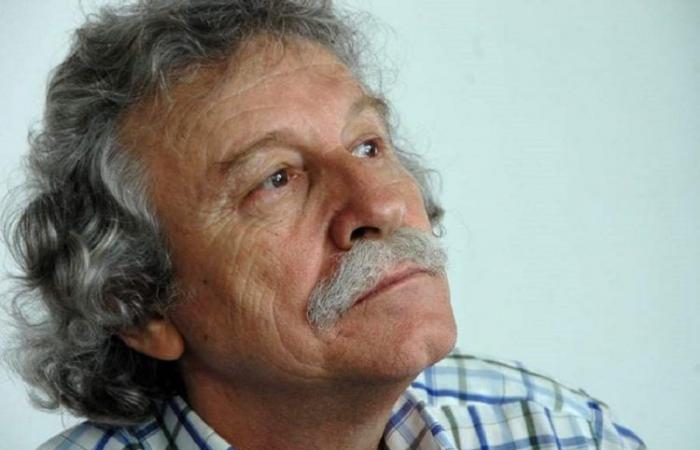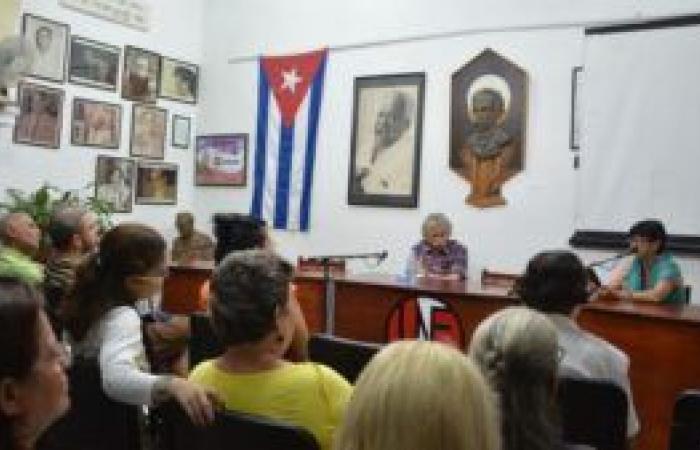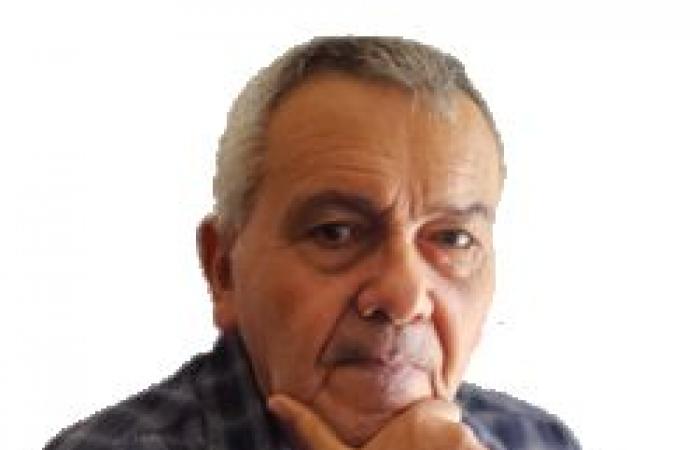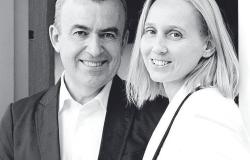The books are surrounded by ghosts. Many, with their efforts, help the potential reader reach a text well finished in writing, spelling, and the spiritual flexibility that should accompany a good work, but they are rarely remembered.
Among them, editors are essential to finishing that small treasure that comes into our hands from bookstores and libraries. We approach one of them, with a dozen published books: Manuel García Verdecia, also a writer, essayist, poet, translator, professor and cultural promoter. For 20 years, every Thursday afternoon, he has chaired the “Literary Café” gathering from Uneac, which has a faithful and large attendance and has become a true symbol of the city.
We went to Verdecia, as we call it with affection and respect, with a handful of questions to learn from the word of a relevant editor the many mysteries and paths of that respectable profession.
From the moment the book reaches the publisher and until it is presented to the public, how many hands “caress” it?
It is a progressive decanting process. It almost always begins with a reading council that is responsible for deciding whether the work has qualities that make it worthy of publication. Then they pass it to the editor who is the main person in charge of making the book complete. Subsequently, he goes to the corrector, who makes sure that he hasn’t skipped any part or that he hasn’t left that horrible tumor that is the bloat. Before, when direct printing went to the typesetter and typographer, now it is to the layout designer who gives virtual form to the book on the computer. The designer works together with him, who has the important function of finding the best visuality for the book, from the cover that attracts the reader, to the images and interior spaces that make reading more enjoyable. I note that, throughout the process, the editor must be vigilant that each action helps to achieve the intended whole. I don’t think I have any left.
How would you explain the role of the editor to a person not linked to the profession?
I have always said, as a basic definition, that the editor is the one who makes a manuscript become a book. The editor is a necessarily skilled reader, who reads very meticulously, reading not to enjoy but to ensure that the manuscript he is working on becomes a readable and also enjoyable piece. He has to verify punctually that what is written expresses, effectively, what the author wants to say or suggest, since literature is not only direct diction but also insinuating. This requires ongoing dialogue with the author, who is ultimately the one who must approve any modification. This means that to do his job, the editor has to broadly master the language, in its different norms, its grammar in all the vastness of the term, and the culture that is reflected in the work. It is necessary to have imagination, to be able to reach the connotative, non-explicit areas of the work, as well as curiosity and affinity to be able to make meliorative proposals.
What was the first book you edited?
The book in which I began as a professional editor (that is, as an official function) was, without me realizing it, a kind of prediction, because in it two great desires of my life were united: José Martí and translation. It was a research by a librarian from the University of Holguín, Héctor Bonet, whose title was precisely Martí, a translation theorist. The author was very receptive to the changes I proposed so he made my job more accommodating. The difficult thing was to specifically corroborate Martí’s quotes, as well as verify that they actually formed a kind of theory. This work helped me to read the Apostle in another facet of his writing and to draw significant conclusions for my own work as a translator. I think that for being my first edition it was very decent.
What do you remember about the public presentation of that first book?
Every presentation is an event. It is like the birth of a child, it does not matter that you already have several descendants, every time another is born you are in a disturbing mixture of joy and fear. Due to the subject of that book, the audience was made up of a specialized and interested public. So everything went very smoothly. So it made me feel very honored to notice that interest, at the same time it made me very happy to see the author happy to have his first book. It is something emotional and rewarding.
What is your editing ritual, where do you start?
I think I do the normal thing that every editor does, read it. Of course there are always certain previous inquiries such as who the author is, where he comes from, how the book got here, what the thing is about… But there is no better way to edit than attentive and conscious reading. I usually read the book a couple of times without dwelling on formal details, just to verify that it is effective in conveying the issue it wants to express. Then I do a slower reading, step by step, and then I begin to pay attention to aspects of the writing, clarify dark areas, eliminate vicious repetitions, synthesize inappropriately extensive aspects, eliminate (this is the most difficult thing in dealing with the author, since each appreciates what he has done and considers it effective) those parts that redound, confuse or add nothing to the effectiveness of the book.
Of course, I repeat, you must maintain systematic communication with the author. When one considers it edited, the interaction with the other technicians who give definitive shape to the book begins, since it is the editor who has the general and detailed idea of what he wants to express, therefore he cannot neglect the composition, the correction nor the design, since any inappropriate slip in these parts damages the overall quality of the work.
Do you think that the editor should pay more attention to spelling and grammar issues than to the content of the book?
The previous answer partly talks about this. The editor is an advisor who helps the author to ensure that the work he conceived is effective, appropriate, interesting in the subject it deals with and also does so in a way that does not hinder achieving those goals and, at the same time, converts the author. reader into an active participant in the construction of ultimate meaning. That is why the editor is obliged to delve into the content of the work to propose any ellipsis, extension or clarification so that it gains sufficient clarity, depth and relevance. This has to be combined with finding the best way of literary writing so that the form provides the best exposition of the subject.
Also read:
Verdecia: translating is a linguistic, aesthetic and spiritual learning
The author’s views on issues such as punctuation, paragraph size, and sentences often lead to discrepancies, how do you resolve them?
Of course, one always finds deep-rooted habits, concepts, personal appreciations that, when they hinder the formal development of the work, the editor must help resolve them, with reasoning, technical knowledge and the obvious desire to benefit the author. Discrepancies are not bad, since it can happen that both the author and the editor are wrong and have to find a new option. It is bad that there is no willingness to search for the best way and beneficial consensus.
Have you come across authors who are editors (or were) or have training in that sense? How much does your work benefit?
Yes, I have edited books by some editors, such as Lourdes González, Rubén Rodríguez (newspaper editor), Roberto Fernández Retamar… among others. Of course, in principle, it is a help because they have fundamental knowledge of the techniques of structure and formation of a book. However, it is not always a panacea, as sometimes there are ideas that are not based on a strict technical foundation but on a systematic practice and even on a capricious intention of the author. So you always have to negotiate, without arrogance or prejudice, with an open mind.
Does editorial work differ depending on the subject or genre: narrative, poetry, theater, history, science, politics…?
There are texts that have a pragmatic stylistic function, that is, the important thing is to transmit information and do so in the most clearly precise and forceful way. Obviously I am talking about works that do not depend so much on invention as on the compilation and structuring of data, from which conjectures or theoretical generalizations are presented. Here would be the historical, scientific, political works, etc. Already with the books that are part of the literary field (novels, stories, poetry), where imagination, fabulation, connotation and the use of techniques to increase the beauty and polysemy of the language play a primary role since it is necessary to work on the edition with another perspective and a particular knowledge of literary techniques.
What books do you prefer to edit?
Being a writer, I like to edit literary books more. They help me exercise my writing skills although in a receptive, not passive, way.
Which ones are more difficult?
I think the most difficult thing to edit is poetry and translations. The first for the subtlety of meaning it provides and its connotative level. The second because they require knowledge not only of the mother tongue but also of the foreign language, as well as mastery of many cultural elements of that language.
You are also a writer, how much has being an editor influenced your work?
The edition is an attentive and intentional reading in discovering issues and ways. By delving into the creative particularities of other authors, one can gain new ways of thinking or doing, either by acceptance of what the other does or by rejection (I wouldn’t do it that way), which always leads us to a overcoming.
How does the editor relate to the other specialists involved in the process of creating a book?
Throughout the entire process of writing the book, the editor must be like the conductor of the orchestra. He has to ensure that all the instruments are in tune and that they play their part in harmony with the others, so that nothing is out of tune.
What do you advise an editor who is starting out?
I don’t think I’m an editor with enough knowledge to give advice, but I would dare to give two. First, read a lot, constantly, and in doing so pay attention not only to the subject of the book but also to the way each line, each paragraph, each chapter is made. The second would be to look for works edited by already established specialists and study how that editor resolves the different problematic aspects that a book presents.
Are there professional development opportunities for editors? Any initiative in this regard?
If they exist. In some universities, ecdotics is studied, which is the discipline that is responsible for researching and systematizing the different techniques and tools to edit a book. However, I believe that the best way to improve is to edit again and again, since each new book is a challenge. It would be good if someone thought of making an anthology of well-edited works, perhaps by genre, so that it could serve as a guide to editors and as an encouragement to those who did notable work in this regard.

Latest posts by José Miguel Abreu Cardet (see everything)









